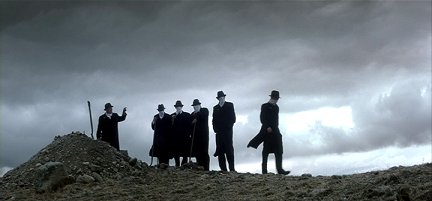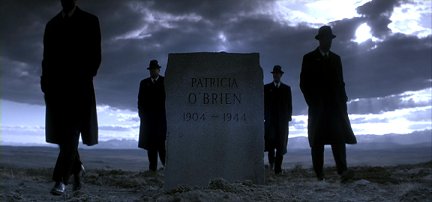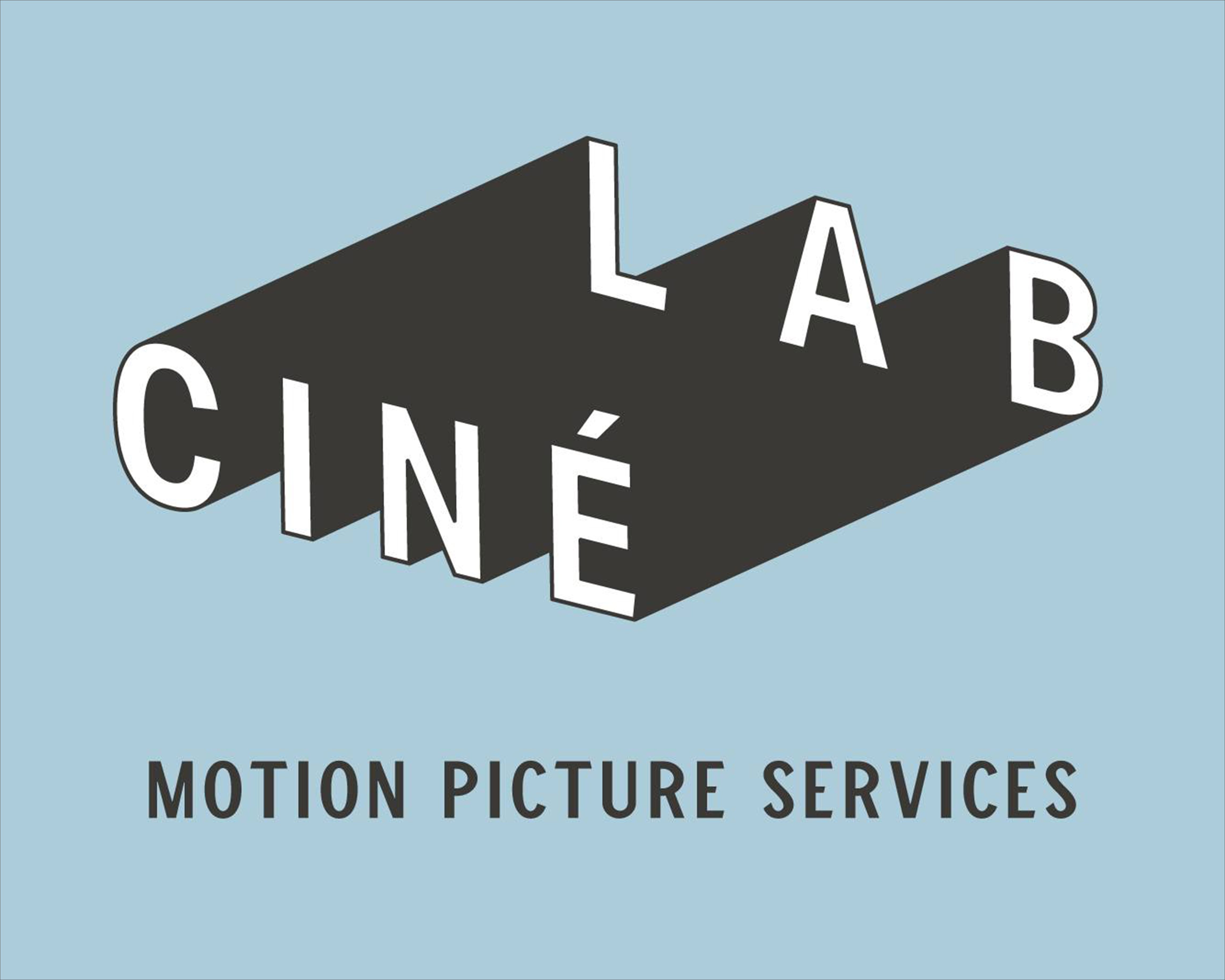Mr. Mullen, with your experience, I have a question. Do think that before you collaborate with others on any given project, you should shoot films just by yourself with no one else? I've been told that working alone for a while is best, so you can master all the elements of filmmaking, but also see how creative you really are (I mean, you have to come up with a film that just you can shoot that's not animation!) What's your opinion on just growing as a filmmaker. Would you recommend both? Thanks.
You are using an out of date browser. It may not display this or other websites correctly.
You should upgrade or use an alternative browser.
You should upgrade or use an alternative browser.
alone vs. collaboration
- Thread starter Lazlo
- Start date
David Mullen ASC
Active member
Yes, as a cinematographer, you need to think as a filmmaker too so it is important to learn how to make films on a general level artistically, not just worry only about lighting and composition. This will give you the skills to help the director as long as you make it clear that he's in charge and you're not trying to take over his job.
I actually started out thinking I was going to be a director and spent nearly a decade making my own short films.
I actually started out thinking I was going to be a director and spent nearly a decade making my own short films.
David Mullen ASC
Active member
I didn't go to film school until I was 27, so I had spent nearly a decade learning on my own, mainly by reading books and magazines at various film libraries in Los Angeles, plus watching a lot of movies, and making my own films in Super-8 mostly, a little 16mm by the time I went off to film school. So I was more or less self-taught.
What has been the biggest difference in shooting films on your own, self taught, and the professional films (and budgets) you have worked on? What was one of the most suprising things that you met when you first entered the buisness from a production standpoint? I'm trying to get an insight into what it is to be a filmmaker. Thanks for the time.
David Mullen ASC
Active member
Well, the main difference was that on my own projects, I was the entire crew practically. Shooting for other directors and with crews is what I had to learn later in film school and afterwards -- the issue of collaboration, which wasn't so much of an issue when I did everything.
On my first feature with a budget, one of the things I forgot to think about was where equipment trucks could park. We picked a location on a narrow street in the Hollywood Hills and I had all the trucks in my way when we did our exterior shots (but there wasn't anywhere else to park). Now this was mostly my fault but looking back, I wonder why the more experienced (then) AD and Transpo Captain didn't think about it either. Now when I scout locations, I'm much more aware about trying to hide the crew, trucks, and gear from the camera angles. You have to know what will be on-camera and what will be off-camera. There is a huge apparatus to filmmaking that has to be dealt with.
Dealing with a tight schedule is another thing that has to be learned. Knowing how much you can shoot in a 12-hour day, etc.
As for making small films look bigger-budgeted, that's sort of what most decent cinematographers do. You have to find things that add production value in ways that don't take money to accomplish. It may be just a spectacular view from a hilltop, or great-looking location (or leading actress!) It's also understanding that most good lighting is SIMPLE, or at least, LOOKS simple, so it's not always about how much equipment you have but learning to put one light in the best place for the look you want.
When you have a tiny crew with almost no equipment, you have some advantages too -- you can move to different locations faster, you can wait for the natural light to be right, etc. When I was shooting Super-8 I had all sorts of tricks to get great shots, sometimes just by noting locations around LA that looked photographically interesting, like "hey, there's a bus bench under this freeway overpass; a person sitting on this in silhouette against a bright background on a telephoto lens would look very striking..."
On my first feature with a budget, one of the things I forgot to think about was where equipment trucks could park. We picked a location on a narrow street in the Hollywood Hills and I had all the trucks in my way when we did our exterior shots (but there wasn't anywhere else to park). Now this was mostly my fault but looking back, I wonder why the more experienced (then) AD and Transpo Captain didn't think about it either. Now when I scout locations, I'm much more aware about trying to hide the crew, trucks, and gear from the camera angles. You have to know what will be on-camera and what will be off-camera. There is a huge apparatus to filmmaking that has to be dealt with.
Dealing with a tight schedule is another thing that has to be learned. Knowing how much you can shoot in a 12-hour day, etc.
As for making small films look bigger-budgeted, that's sort of what most decent cinematographers do. You have to find things that add production value in ways that don't take money to accomplish. It may be just a spectacular view from a hilltop, or great-looking location (or leading actress!) It's also understanding that most good lighting is SIMPLE, or at least, LOOKS simple, so it's not always about how much equipment you have but learning to put one light in the best place for the look you want.
When you have a tiny crew with almost no equipment, you have some advantages too -- you can move to different locations faster, you can wait for the natural light to be right, etc. When I was shooting Super-8 I had all sorts of tricks to get great shots, sometimes just by noting locations around LA that looked photographically interesting, like "hey, there's a bus bench under this freeway overpass; a person sitting on this in silhouette against a bright background on a telephoto lens would look very striking..."
David Mullen ASC
Active member
For example, here are some shots from "Northfork" that I did. In both cases, the camera was on a sandbag on the ground and there was no lighting. All you really have is the Montana landscape, the stormy weather (which was luck) and a few key elements like men dressed in black. So it's possible with the right elements to create good images without a lot of money.


The only "trick" is that there was an ND.60 grad filter at the top of the frames. It's more about picking the right lens and camera angle -- and about SEEING with your eyes what looks interesting photographically.


The only "trick" is that there was an ND.60 grad filter at the top of the frames. It's more about picking the right lens and camera angle -- and about SEEING with your eyes what looks interesting photographically.
Was it difficult for you to meet others that had a passion for filmmaking? How would you recommend meeting others that are dedicated to the buisness (with and without filmschool). Obviously filmschool helps you find others with the interest, but if you aren't in filmschool, or arent going... Would a big production take you if you worked for free, like an internship? Thanks for the last detailed answer, you have a lot of great things to say.
David Mullen ASC
Active member
It's hard for me to play the "what if?" game regarding my own life, i.e. what if I hadn't gone to film school, etc. It's hard for me to describe other scenarios; all I can tell you was that when I was a beginner, I asked every professional cinematographer how they came to be what they were -- and I got a different story each time. "Oh, I started out as a fashion photographer in NYC..." "Oh, I used to make documentaries for the BBC...", "Oh, I got a job as a tape deck operator in a Chicago TV station..."
You forge your own path one step at a time. The key is to find a way to maximize opportunities. That may mean volunteering a lot on student films or it may mean getting a job at a camera rental house or it may mean going to film school. There are no guarantees that any one approach is more effective than the other because there is luck involved. All I can say is that in my case, I spent a LOT of time on my own learning about filmmaking so that I would be ready when opportunities finally came.
Sometimes I meet beginners who think it would be "fun" to be a cinematographer after working a little on student films, etc. and they dabble in it a little -- so they ask me what I did and I mention starting out reading 80 years of "American Cinematographer" back issues and 30 years of "SMPTE Journal" and "International Photographer" back issues and a dozen cinematography textbooks just in the early years -- not to mention shooting my own short films over the weekends -- and I think they get a sense that maybe they aren't being serious enough... I figured that there were hundreds of people that I was going to be competing with for jobs so being merely competent wasn't good enough.
You forge your own path one step at a time. The key is to find a way to maximize opportunities. That may mean volunteering a lot on student films or it may mean getting a job at a camera rental house or it may mean going to film school. There are no guarantees that any one approach is more effective than the other because there is luck involved. All I can say is that in my case, I spent a LOT of time on my own learning about filmmaking so that I would be ready when opportunities finally came.
Sometimes I meet beginners who think it would be "fun" to be a cinematographer after working a little on student films, etc. and they dabble in it a little -- so they ask me what I did and I mention starting out reading 80 years of "American Cinematographer" back issues and 30 years of "SMPTE Journal" and "International Photographer" back issues and a dozen cinematography textbooks just in the early years -- not to mention shooting my own short films over the weekends -- and I think they get a sense that maybe they aren't being serious enough... I figured that there were hundreds of people that I was going to be competing with for jobs so being merely competent wasn't good enough.
Similar threads
- Replies
- 0
- Views
- 911
- Replies
- 2
- Views
- 2,904
- Replies
- 27
- Views
- 4,451
B
- Replies
- 0
- Views
- 947





